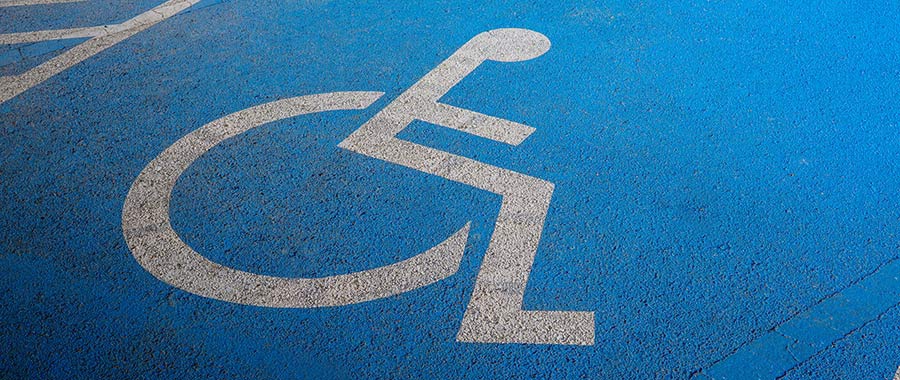The views expressed in our content reflect individual perspectives and do not represent the authoritative views of the Baha'i Faith.
I may be more sensitive than most to the rights of people with disabilities because of one of my brothers.
He has a degenerative nerve disorder that started when he was young and has mostly affected his legs. He now needs to walk, drive, etc. with assistive devices. His condition has worsened throughout his life, but he resisted parking in handicapped spots for a long time and delayed adapting his car to work with hand controls. He has always wanted to live normally for as long as possible.
When I think of people like him, though, I want to ensure that services and special access for the disabled are used by those who really are disabled—and not by those individuals who are out to “game the system.” This phrase is defined “as using the rules and procedures meant to protect a system in order, instead, to manipulate the system for a desired outcome.” Probably all of us can think of a time when we have done this for our own selfish benefit. But, we may rarely think about whom else it might have affected.
So, if you really need that handicapped sticker to park closer to the mall or if you really need a service animal for a physical impairment or to detect a psychiatric episode, then, by all means, take advantage of these services. There are good reasons that advanced societies have these laws. But using someone else’s access or doing things like taking your pets to the grocery store just seems a little, well, wrong.
(On the latter point, even emotional support animals or comfort/therapy dogs are not considered service animals under the Americans with Disabilities Act.)
As a society, we seem to be taking more and more license for privileges that weren’t meant for us—just to do what we want to do. One can argue that these are just small and inconsequential things, or do they set the stage for dishonesty with oneself and others? Interestingly, when I looked up “honesty” in the dictionary, I discovered that it was attached to a lot of other principles, such as being upright, fair, truthful, sincere, and free from deceit or fraud. Many passages in the Baha’i teachings offer similar frameworks:
Honesty, virtue, wisdom and a saintly character redound to the exaltation of man, while dishonesty, imposture, ignorance and hypocrisy lead to his abasement. By My life! Man’s distinction lieth not in ornaments or wealth, but rather in virtuous behavior and true understanding. – Baha’u’llah, Tablets of Baha’u’llah, p. 57.
Beautify your tongues, O people, with truthfulness, and adorn your souls with the ornament of honesty. Beware, O people, that ye deal not treacherously with any one. Be ye the trustees of God amongst His creatures, and the emblems of His generosity amidst His people. They that follow their lusts and corrupt inclinations, have erred and dissipated their efforts. They, indeed, are of the lost. – Baha’u’llah, Gleanings from the Writings of Baha’u’llah, p. 297.
Sometimes, when I write articles, I like to look up the meaning of words, because I find that the definitions often have more nuance then I realize. “Corruption” for example is primarily defined as dishonest or illegal behavior, especially by powerful people. However, it also means “inducement to wrong by improper or unlawful means” or a “departure from what is pure or correct.”
Others have to look into their own conscience to determine whether or where they may be “gaming the system,” but the guidance offered in the Baha’i writings offers a standard to which we can all aspire. So how can we set the bar higher to support people who face more challenging circumstances then we do?
Although others may disagree, I believe that spiritual and moral directives—across all religions—provide the foundations so individuals can judge when they may be (dishonestly) taking advantage of circumstances, or of other people. The following quote emphasizes the important role of religion in leading humanity toward these loftier heights:
Universal benefits derive from the grace of the Divine religions, for they lead their true followers to sincerity of intent, to high purpose, to purity and spotless honor, to surpassing kindness and compassion, to the keeping of their covenants when they have covenanted, to concern for the rights of others, to liberality, to justice in every aspect of life, to humanity and philanthropy, to valor and to unflagging efforts in the service of mankind. – Abdu’l-Baha, The Secret of Divine Civilization, p. 98.
















Comments
Sign in or create an account
Continue with Googleor